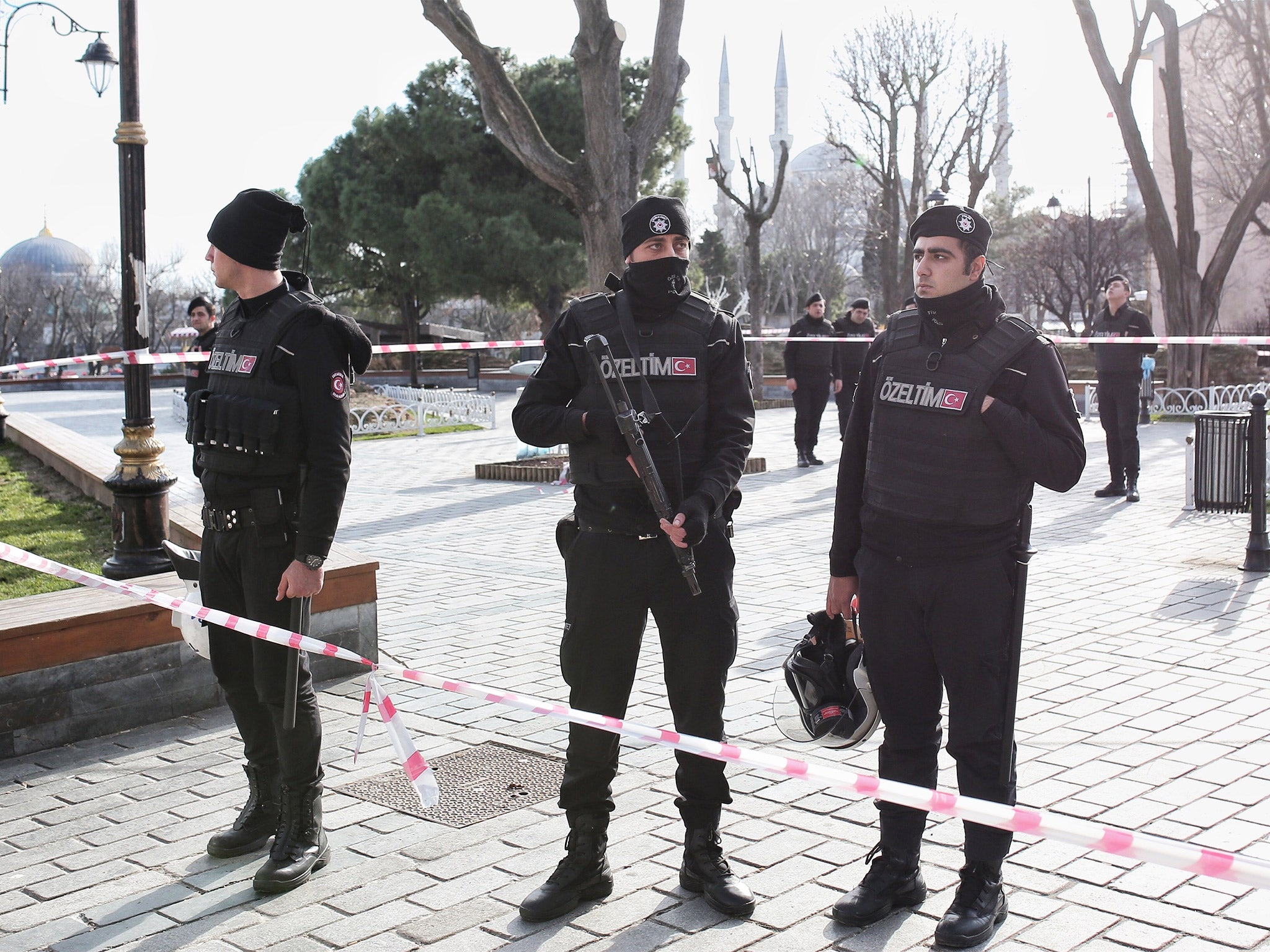Istanbul attack: Isis may be concluding Turkey is no longer a place where it need tread carefully
If the terror group was behind this bombing it is important to know if it is a one-off or the start of a new campaign

Your support helps us to tell the story
From reproductive rights to climate change to Big Tech, The Independent is on the ground when the story is developing. Whether it's investigating the financials of Elon Musk's pro-Trump PAC or producing our latest documentary, 'The A Word', which shines a light on the American women fighting for reproductive rights, we know how important it is to parse out the facts from the messaging.
At such a critical moment in US history, we need reporters on the ground. Your donation allows us to keep sending journalists to speak to both sides of the story.
The Independent is trusted by Americans across the entire political spectrum. And unlike many other quality news outlets, we choose not to lock Americans out of our reporting and analysis with paywalls. We believe quality journalism should be available to everyone, paid for by those who can afford it.
Your support makes all the difference.Turkey is becoming a more dangerous place, but then so is the Middle East and North Africa and anywhere Isis can send its suicide squads. The Turkish authorities say that the bomber who killed at least 10 people, mostly German tourists, near the obelisk of Theodosius, not far from Hagia Sophia and the Blue Mosque in Istanbul, was a 28-year-old Saudi making it likely though not certain that Isis ordered the attack.
If Isis was behind the bombing it is important to know if this is a one-off or the start of a new campaign. In July its suicide bombers killed 30 Turks going to help rebuild the Syrian Kurdish city of Kobani and in October they killed a further 100 peace demonstrators outside Ankara railway station.
By doing so, Isis succeeded in setting the political agenda by provoking a resumption of hostilities between Turks and Kurds and setting the scene for President Recep Tayyip Erdogan success in the parliamentary election on 1 November.
Isis targets civilian targets with such frequency that it is possible to read too much into a single explosion. It was presumably aimed at Turkey’s $21 billion income from tourism with an implied threat of more to come.
Turkey has been unenthusiastically sending planes to bomb Isis targets in Syria, under pressure from the US, and has arrested members of Isis cells inside Turkey. The government may not have done very much, but this is very different from the years when Isis volunteers were able to cross unimpeded the Turkish-Syrian border to reach the Islamic State.
Much of this border has been closed on the Syrian side by the advances of the Syrian Kurdish forces that now control half the 550-mile-long frontier. The Turkish government has insisted that it will not allow Kurdish forces to advance west of the Euphrates, to close off the last 60-mile long stretch of territory which is Isis’s last access and exit point with Turkey.
The US has been forcefully demanding that Turkey seal this border by stationing 30,000 soldiers on the Turkish side of the frontier, west of Jarabulus. This pressure has been growing since the Paris massacre on 13 November, in the light of evidence that the master-mind of the plot had been able to reach France from the territory controlled by Isis, by crossing easily into Turkey. A possible motive for yesterday’s bombing could be a warning that Isis will retaliate for any measures taken against it by the Turkish state. It certainly has the means to do so, because 1,000 or more of its fighters are Turks and it has pockets of committed support inside Turkey.
The violence emanating from the civil wars in Syria and Iraq has already affected Turkey. Low level guerrilla warfare between the Kurdistan Workers Party (PKK) and the Turkish army is spreading across Kurdish areas of south east Turkey. President Erdogan reinforced his power at home when his party won the parliamentary election. Turkey’s influence in Syria is under threat, however, both from the Syrian Kurds – backed by US air strikes and from Russia’s extreme hostility to Turkey after Turkish jets shot down a one of its aircraft in November, in what looks like a carefully-prepared ambush. Russian military engagement in Syria makes it more difficult for Turkey to threaten to act against the Kurds there.
Isis may be concluding that Turkey is no longer a place where it need tread carefully in order to preserve official tolerance of its activities. With no sign of the war in Syria ending, the latest Istanbul bomb could be the precursor of far worse carnage.
Join our commenting forum
Join thought-provoking conversations, follow other Independent readers and see their replies
Comments